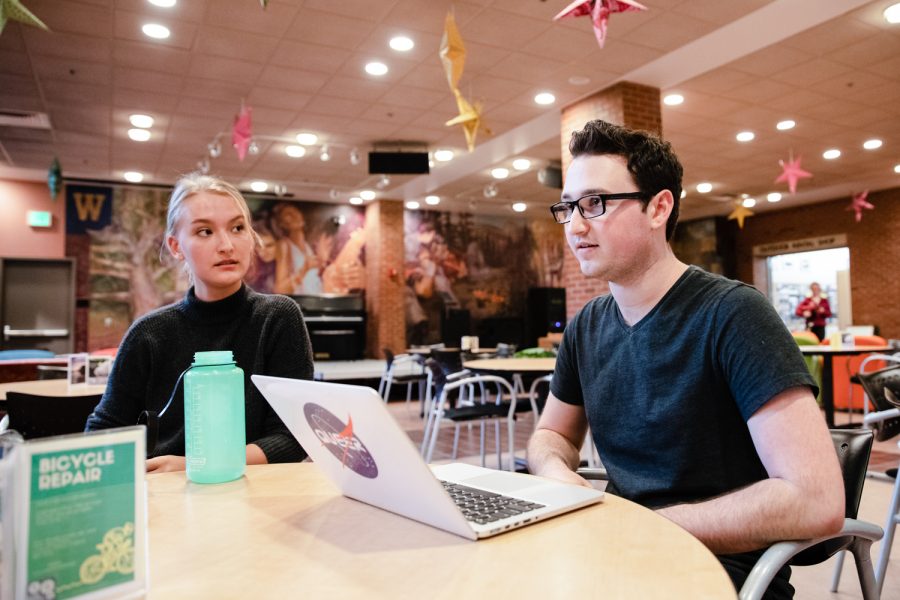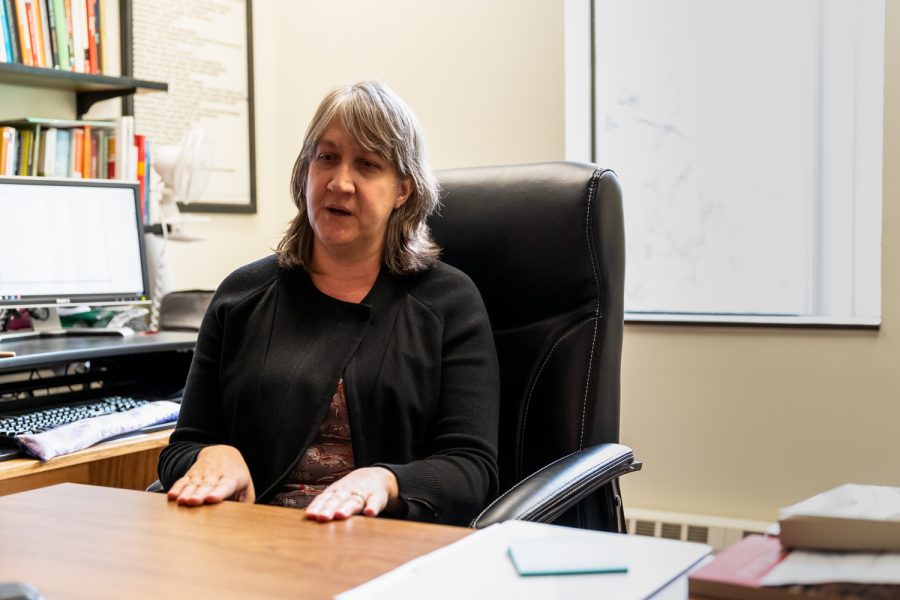Whitman Resistance to Kavanaugh
October 12, 2018
Brett Kavanaugh was confirmed by the Senate and sworn in as a Supreme Court Justice on Saturday, Oct. 6. Despite accusations of sexual assault from three women, a week-long investigation by FBI and vocal political opposition and activism across the country, the final vote was 50 to 48 with Senator Joe Manchin being the only Democrat to vote in favor of Kavanaugh.
In the past several weeks, Whitman students have engaged in grassroots political activism to prevent Kavanaugh’s ascension to the position of Supreme Court Justice. Planned Parenthood Generation Action (PPGA) in conjunction with Feminists Advocating Change and Empowerment (FACE) created a phone banking campaign to persuade swing-vote Senators to vote against the nomination.

Before the Senate vote, Emma Patterson and Austin Kamin discussed student resistance to Kavanaugh on campus. They both emphasized the need to be politically active and cognizant of self-care needs.
Junior Austin Kamin, the co-president of FACE, has been instrumental in campus opposition to Kavanaugh. In collaboration with PPGA, FACE sent letters and wire coat hangers to Senator Susan Collins (R) to protest her support of Kavanaugh.
“It comes down to appealing to these senators as people because it’s up to us, even if this person isn’t our representative, to say: we are not okay with the behavior Kavanaugh represents,” Kamin said. “We’re not okay with putting somebody like this, who represents the ideals that he does, on the highest court in the land.”
For many Americans, opposition to Kavanaugh’s nomination began only weeks ago during the Senate hearings in which he became emotional and radically partisan, but for junior Emma Patterson, the co-president of PPGA, the fight began at the announcement of Justice Kennedy’s retirement.
“Planned Parenthood has been in the thick of it for a little while,” Patterson said. “I think immediately, as soon as Justice Kennedy stepped down, we started organizing on a national level. I was in a national organizing conference in Detroit this summer, preparing for what was about to happen. As soon as I got back to campus, Kavanaugh had already been nominated. We had to hit the ground running.”
Kamin explained how they wanted to approach and fight the Kavanaugh nomination.
“There were a couple different ways we wanted to tackle the issue with Kavanaugh,” Kamin said “It comes down to education, action, and self-care because it can be really hard to actually take the time to know what is going on, know who to contact, who’s decided where they want to vote, and it’s up to us to make our voices heard when so many rights and lives are at stake.”
Both Kamin and Patterson emphasized the need for students to become more involved with the political process. In planning the phone banking campaign, they wanted to make it as easy as possible for students to make a difference.
“Democracy is not a spectator sport. You can’t just sit back and say: I can’t believe they’re going to confirm this guy. You need to, in that moment, step up,” Patterson said. “Take the ten minutes that it takes to make two phone calls. It’s not a lot, but it’s something.”
Professor Michelle Janning, the Chair of the Sociology Department, addressed the difficulty of getting involved in politics, and why, for many, it is easier to ignore what is happening. However, she emphasized the need for students to be aware not only of events and issues on their own campus but those on a national level.
“The ignoring of politics is not unique to college students, of course,” Janning said. “Our lives get busy. I have to make extra time to pay attention to things beyond my Facebook feed. I would want students to be able to say, this is a decision that will impact the rest of our lives. The Supreme Court decision making process isn’t just one moment in time, it affects the next several decades–your lives, the lives of your children, and your children’s children.”
It is important for Americans to recognize the consequences of Brett Kavanaugh’s nomination and confirmation to the Supreme Court. While we have yet to see how Kavanaugh will act as a Justice, his frequent outbursts, partisanship and alleged sexual misconduct has concerned and angered many Americans.
“Not only are we looking at someone who has [allegedly] committed multiple sexual assaults, but also he’s been put through a process that could make him into one of the most influential people in our country,” said Kamin. “He has [also] shown traits of toxic masculinity, ridiculous double standards during his hearings, and a gross amount of lies; [he has] not acknowledged that Roe V. Wade is settled law. That’s terrifying.”
For many members of the public, this fear was only compounded by President Trump’s public apology to Kavanaugh and his family for the allegations of sexual misconduct and the FBI probe. This statement has been seen as further discouraging women from coming forward about their own experiences.
During the confirmation of Kavanaugh, Trump said, “Those who step forward to serve our country deserve a fair and dignified evaluation. Not a campaign of political and personal destruction based on lies and deception.”
While Kavanaugh now sits on the Supreme Court, he is, as Kamin argues, only part of a larger problem inherent to America’s political system.
“I think it goes beyond Kavanaugh,” Kamin said. “It points to so many larger issues in our society and how we respond to sexual assault, and how we actually deal with rape, how we deal with gender bias. It’s not enough just to block Kavanaugh individually. While that’s important, we also have to look at the fact that we ended up in a position where we don’t have as much political leverage as we [should]. [We need to find] those who will push progressive ideologies in the way that we want to be going.”






